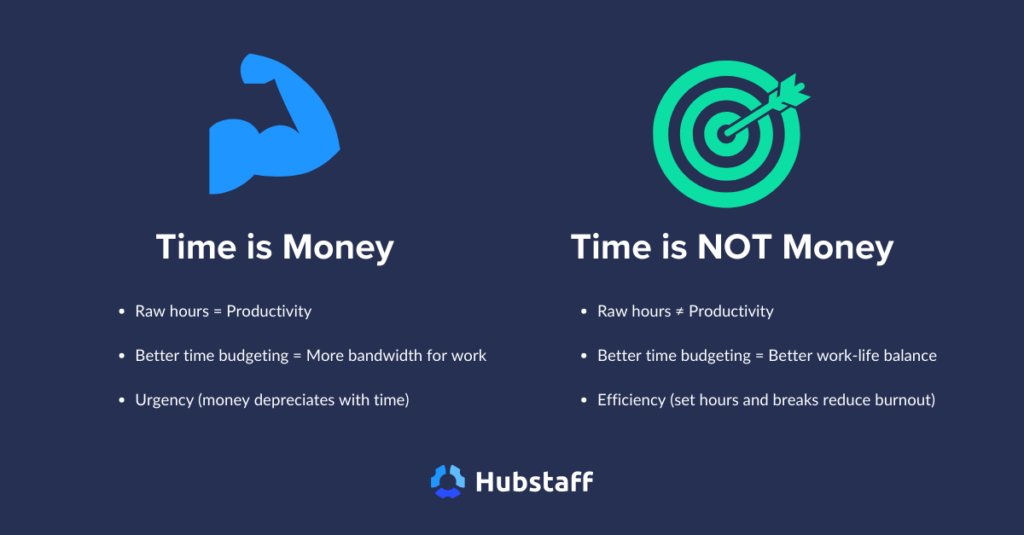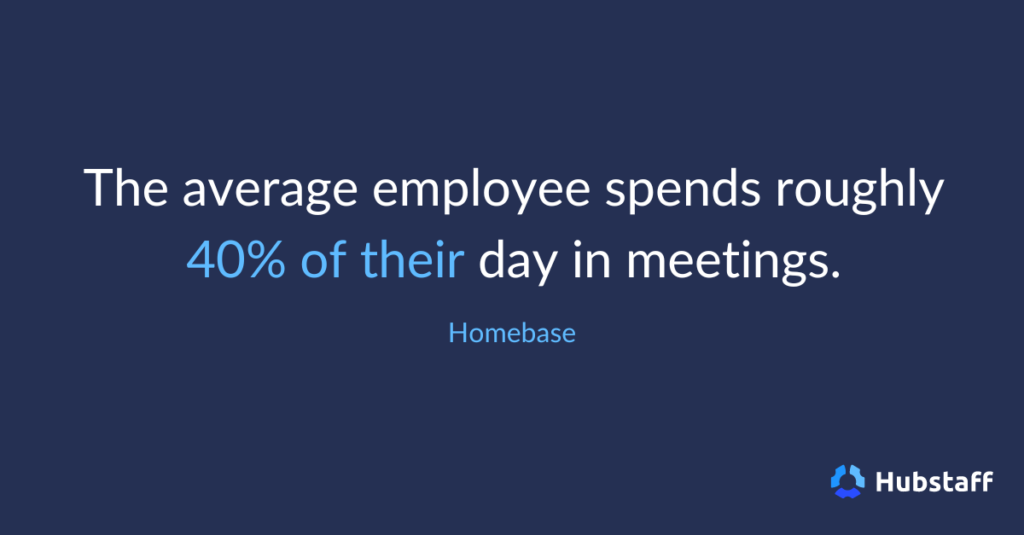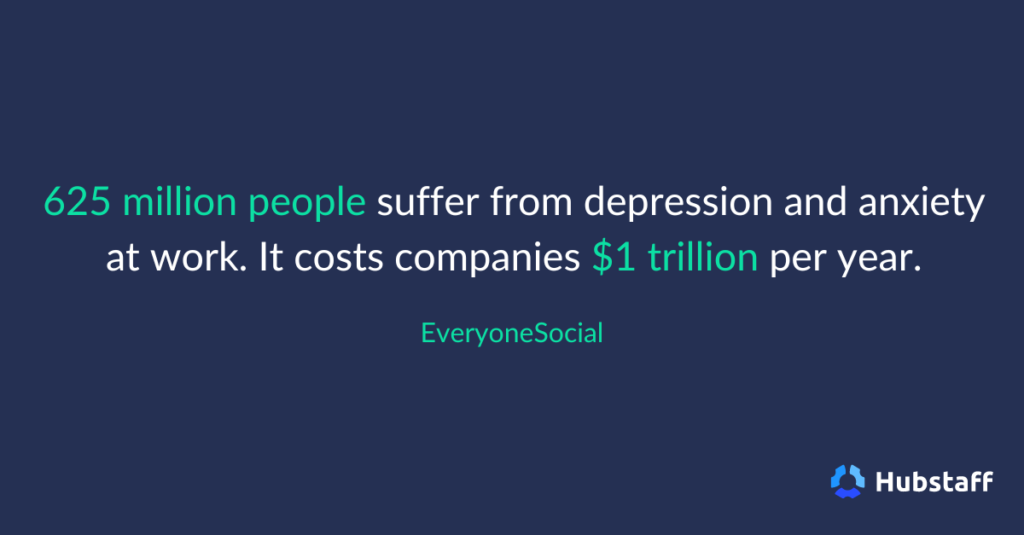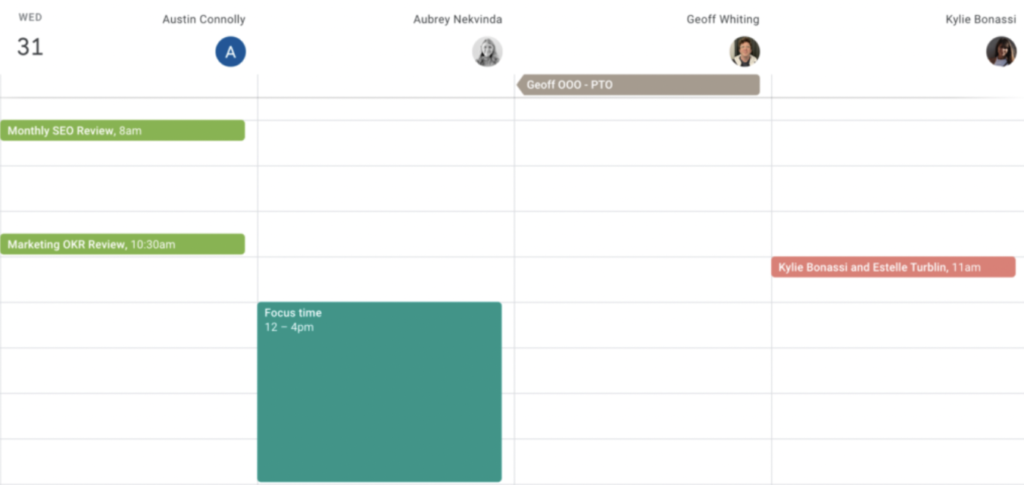You’ve probably heard the old adage, “Time is money.” Depending on your reaction to this sentence, you likely fall into one of two camps when it comes to time budgeting:
- Time is money.
- Time is not money.
Like most things in life, effective time budgeting is about finding the sweet spot between these two lines of thinking.
Masterful time budgeting helps us consider plugging money leaks (like the first group) while also preventing burnout and improving efficiency (like the second group).
No matter which camp you fall into, we all know that budgeting our time better greatly benefits our lives. In this post, we’ll find the discipline, best practices, and tools to budget time effectively. But first, let’s start by defining the practice so we’re on the same page.
Boost your team’s efficiency with Hubstaff's productivity tools
What is time budgeting?
Time budgeting is about viewing time as a resource and investing it in the things that provide the most ROI. As mentioned above, opposing viewpoints exist on how best to do this.
- Time is money. The time value of money states that because money loses value over time, money is worth more now than in the future. Those with this viewpoint have a sense of urgency that equates raw hours to money. They often fill their hours to the brim with work — which isn’t necessarily the most efficient approach and can lead to burnout.
- Time is not money. Authors like Shyam Taneja stress that while time is important, managing ourselves is even more crucial. Those with this line of thinking often spend a lot of time assessing the ROI of working long hours vs. finding a better work-life balance. This camp tends to champion efficiency while sometimes overlooking the power of putting in the raw hours.

Now that we understand time budgeting and some different perspectives surrounding it, let’s look at some of its benefits.
The benefits of time budgeting
What if I told you we can address the issues presented by the “time is money” and “time isn’t money” folks with better time budgeting?
Well, you’re in luck. That’s precisely what I’m saying. Let’s take a look at some of the advantages of effective time management:
Improved productivity
When we budget our time better, we do become more productive. In fact, some time management statistics from Homebase show that:
- Teams embracing time management strategies can reclaim 20% of work hours. When you think of this stat in terms of the standard five-day workweek, your team can reclaim an extra day each week.
- Individual employees who commit themselves to practicing better time management are 57% more productive at completing tasks. Think of the benefits on a macro, company-wide scale.
- The average employee spends roughly 40% of their day in meetings. By planning more effective meetings or reducing time spent in meetings altogether, you can see a considerable bump in focus time.

Now that you’re convinced, here are some of the best ways to budget time better:
- Utilizing time management techniques. Time management systems like the Pomodoro technique, Getting Things Done, or Time Blocking can help you budget time better to reach peak productivity.
- Finding the right tools. Automating processes with productivity tools makes you more efficient and, therefore, more productive. Time tracking, communication, project management, and scheduling tools are just a few examples.
When you increase productivity, you reach a level of efficiency where you don’t need to burn yourself out working longer hours. This improvement, in turn, can help you find a better balance with your personal life. And it all relies on accurate time budgets for your current workload and future tasks.
Better work-life balance
When you budget time better, you reward your team with more free time — no more long hours, unnecessary meetings, or clocking in on the weekends.
With effective time management strategies and tools in place, you can create a better work environment that emphasizes the importance of work-life balance. With better work-life balance, you’ll see improvements like:
- Better employee retention numbers. Employees with better work-life balance are less likely to burnout and, therefore, more likely to stay. For instance, 89% of HR professionals found flexible work schedules positively impacted retention.
- A wider talent pool. 72% of employees feel that work-life balance is essential, and 57% cite poor work-life balance as a deal breaker when looking for a job. The talent pool widens quickly when you allow for more flexibility.
- Reduced burnout. Better work-life balance means less burnout. When you reduce burnout, you save money. Take it from WHO. They found that 625 million people suffer from depression and anxiety at work. The worst part? It costs companies $1 trillion a year in productivity.

That last one is a nice segue into how budgeting time positively impacts stress reduction.
Stress reduction
Increasing productivity improves work-life balance, which, in turn, can reduce stress. While some short-term stress can actually have a positive impact on us, it’s simply not sustainable.
In fact, half of employees are disengaged at work due to stress. When employees are disengaged, they cost companies an astounding amount. According to Gallup, stressed out, disengaged employees cost U.S. businesses around $450 to $550 billion annually.
Well, there you have it:
- When you budget time better, you create a better work-life balance.
- When you create a balanced life, you reduce stress.
- When you reduce stress, you save a considerable amount of money.
Now that we’ve seen the benefits of time budgeting, it’s time to put our money where our mouths are and show you how to create a time budget.
How to create a time budget
You’ve probably created quarterly budgets, marketing budgets, a financial budget, and plenty of other ways to manage expenses at work.
But have you ever created a time budget?
Here are a few steps:
- Identify priorities. While all time is equal, priorities are not. Help employees set priorities so they know which assignments should be worked on first and which should consume most of their time.
- Allocate time slots. Whether you use time blocking, task batching, or another time management method, plotting blocks of time and assigning them to different important tasks is a crucial step to better time budgeting.
- Adjust for flexibility. In the way a project plan includes a contingency fund, your time budget should, too. Don’t fill employees’ hours to the brim with existing work. Build some free time each week for emergency projects, unexpected delays, and other snags.
With these core steps, you can create a time budget that works for you and your team. But how do you ensure that you follow it? With the right tools, of course.
Time budgeting tools and apps
We’re pretty biased, but it’s hard to argue that tools are a crucial component here. After all, we wouldn’t be able to budget time very well without the invention of the clock, right?
That’s why we’ve added a list of the best tools and apps to help you take time budgeting to new heights. Here are a few examples:
- Time trackers. Yes, our bias is showing again. That said, time tracking tools are crucial for effectively budgeting time. The best ones let you track time to specific tasks, see real-time productivity metrics, and tweak idle timeout settings to help you stay focused.
- Payroll tools. For the “time is money” folks, syncing time tracking, timesheets, and payroll is crucial to ensure every cent and second is accounted for correctly.
- Workforce analytics. Good time budgeting isn’t just equally distributing your time to each task. By delving into workforce insights, you can identify productive and unproductive apps, balance meeting and focus time, and become more efficient.
- Calendar and scheduling apps. Think Google Calendar and Outlook. These apps help you stay on top of meetings and even create time blocks for deep work. Apps like Calendly prevent wasted time scheduling meetings so you can focus on spending time where it matters.

Common mistakes in time budgeting
Time budgeting is easy in theory, but it can sometimes be challenging. Here are some common pitfalls of the practice:
- Over-scheduling. As mentioned earlier, don’t forget to include some contingencies in your time budgeting. When you try to maximize every second of the day, you’re more likely to burnout or lack bandwidth when a crisis arises.
- Neglecting breaks. Breaks seem counterproductive, but they help prevent burnout. By scheduling timely breaks, you can recharge and return with a newfound energy that enables you to knock out your work.
- Failing to review and adjust. Budgeting your time is challenging. While we all aspire to a set-it-and-forget-it model, it’s a lofty goal. The way you budget time one week may not work the next. And to those in the “time is not money” group, some weeks will involve pushing your bandwidth to its limits.
Constantly iterating on the process is the only way you get better at it.
Measuring the success of your time budget
The best way to measure the success of your time budget is to use the correct tools. Time tracking, productivity, and workforce analytics tools are crucial for assessing the viability of your current time budgeting best practices.
Beyond time management tools, you can also look at people operations. Raw productivity is excellent, but not if it begins to hurt retention, engagement, and recruiting. You can look to employee engagement tools like Lattice, OfficeVibe, and 15Five for help here.
Creating more accurate time budgets is a smart step whether you view time as money or if you think that, unlike money, time’s value grows when spent on life’s most important tasks.
Conclusion
Well, there you have it. No matter your opinions in the effort vs. efficiency debate, you can find a healthy work-life balance and reach your productivity goals with better time budgeting. We’ve covered:
- The differences in how people view time. By learning the differences in how people view time (and, therefore, how they budget it), you’ve hopefully learned to empathize and communicate time budgeting preferences better.
- The benefits of time budgeting. How budgeting time more effectively helps employees, employers, and everyone across the company meet their personal and professional goals.
- How to create a time budget. The tips for making time slots, allocating time to tasks, and protecting time with a “contingency” plan.
- Time budgeting tools. The best time tracking app or productivity and scheduling tools on the market can help you master time planning.
- Common mistakes. The prevalent pitfalls of misunderstanding time budgeting.
Are you facing competing personal and professional time needs? Then it’s time to highlight high-priority tasks and get rid of unimportant tasks or those that stress you out. And the perfect next step is to create time budgets for all your day-to-day activities.
Most popular
The Fundamentals of Employee Goal Setting
Employee goal setting is crucial for reaching broader business goals, but a lot of us struggle to know where to start. American...
Data-Driven Productivity with Hubstaff Insights: Webinar Recap
In our recent webinar, the product team provided a deep overview of the Hubstaff Insights add-on, a powerful productivity measurem...
The Critical Role of Employee Monitoring and Workplace Security
Why do we need employee monitoring and workplace security? Companies had to adapt fast when the world shifted to remote work...
15 Ways to Use AI in the Workforce
Whether through AI-powered project management, strategic planning, or simply automating simple admin work, we’ve seen a dramatic...




